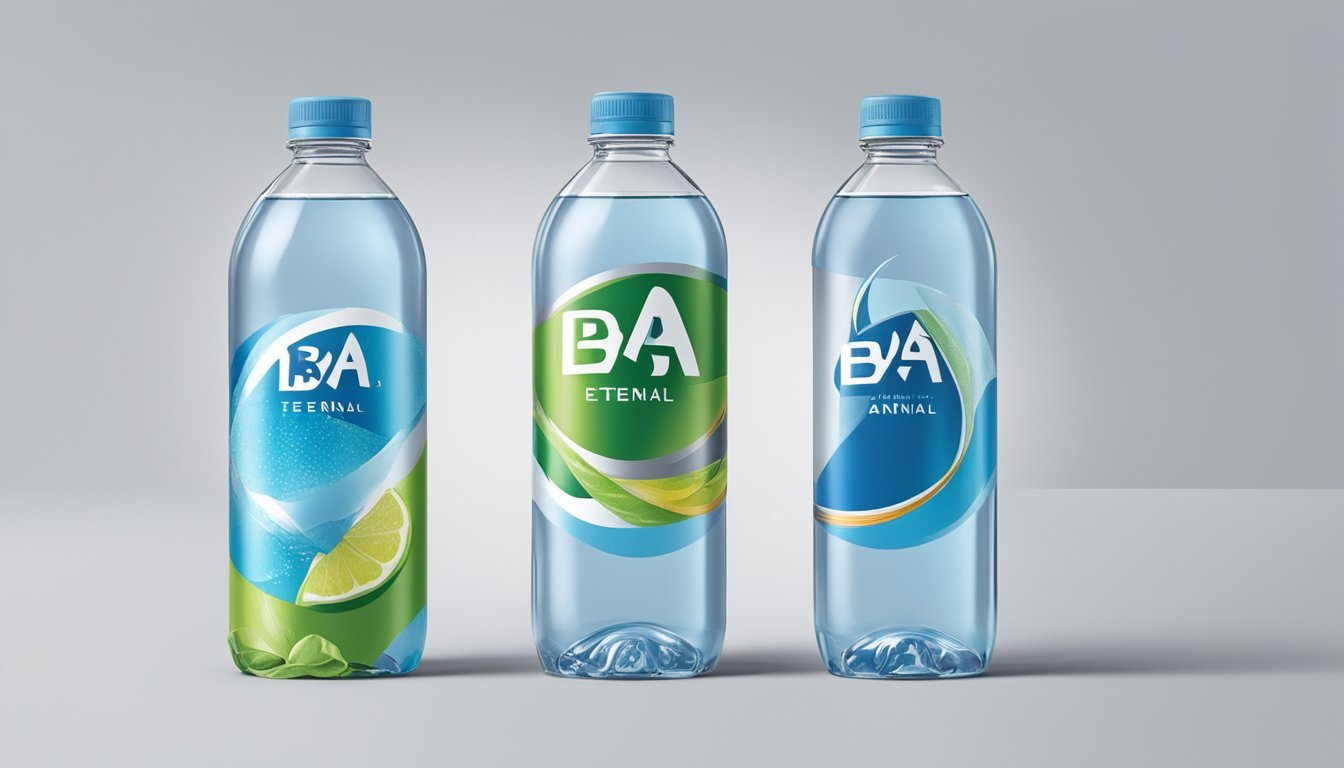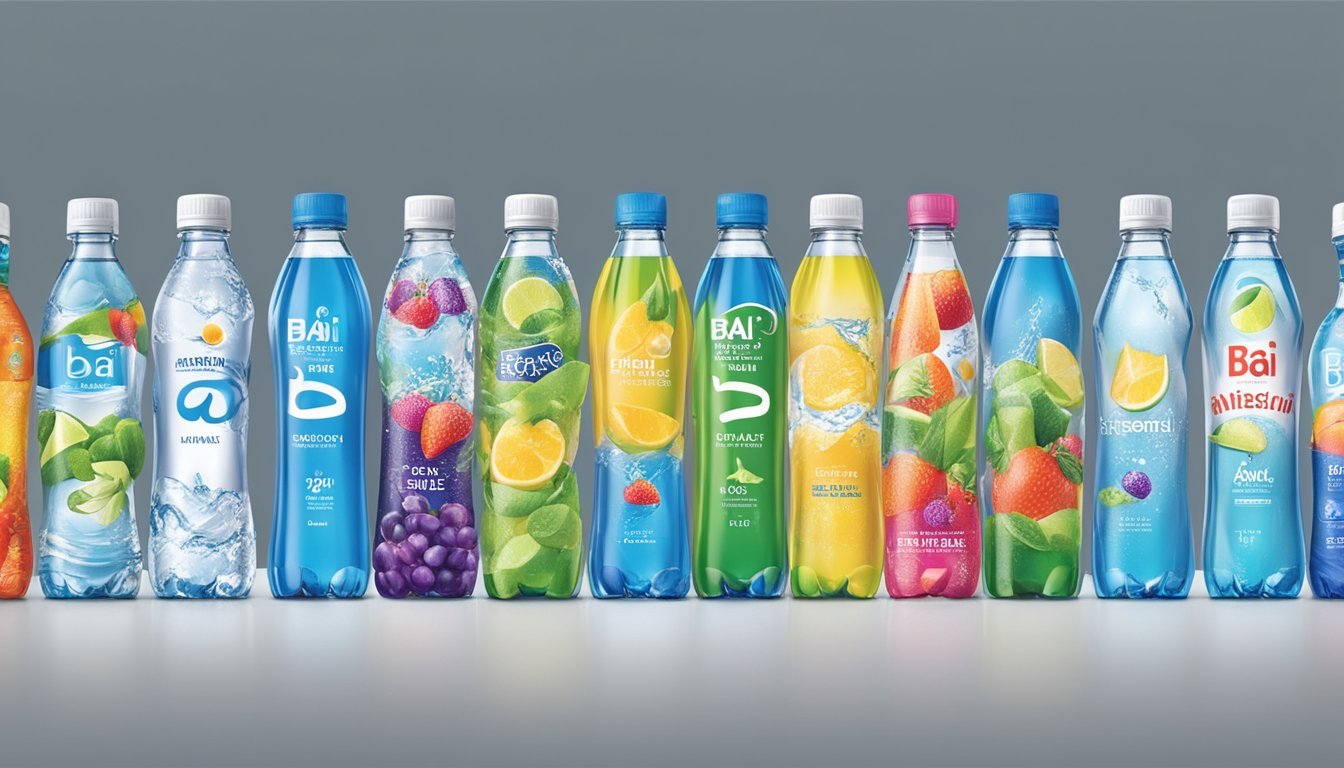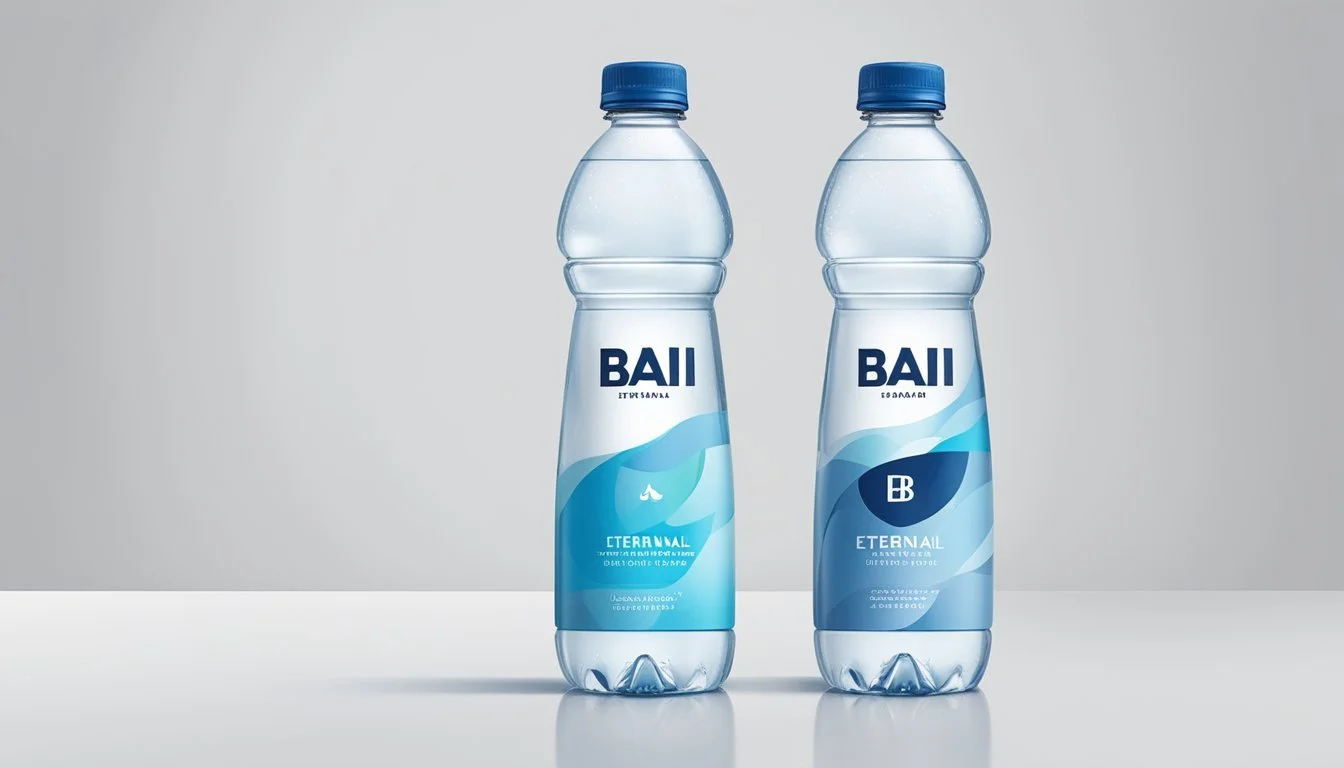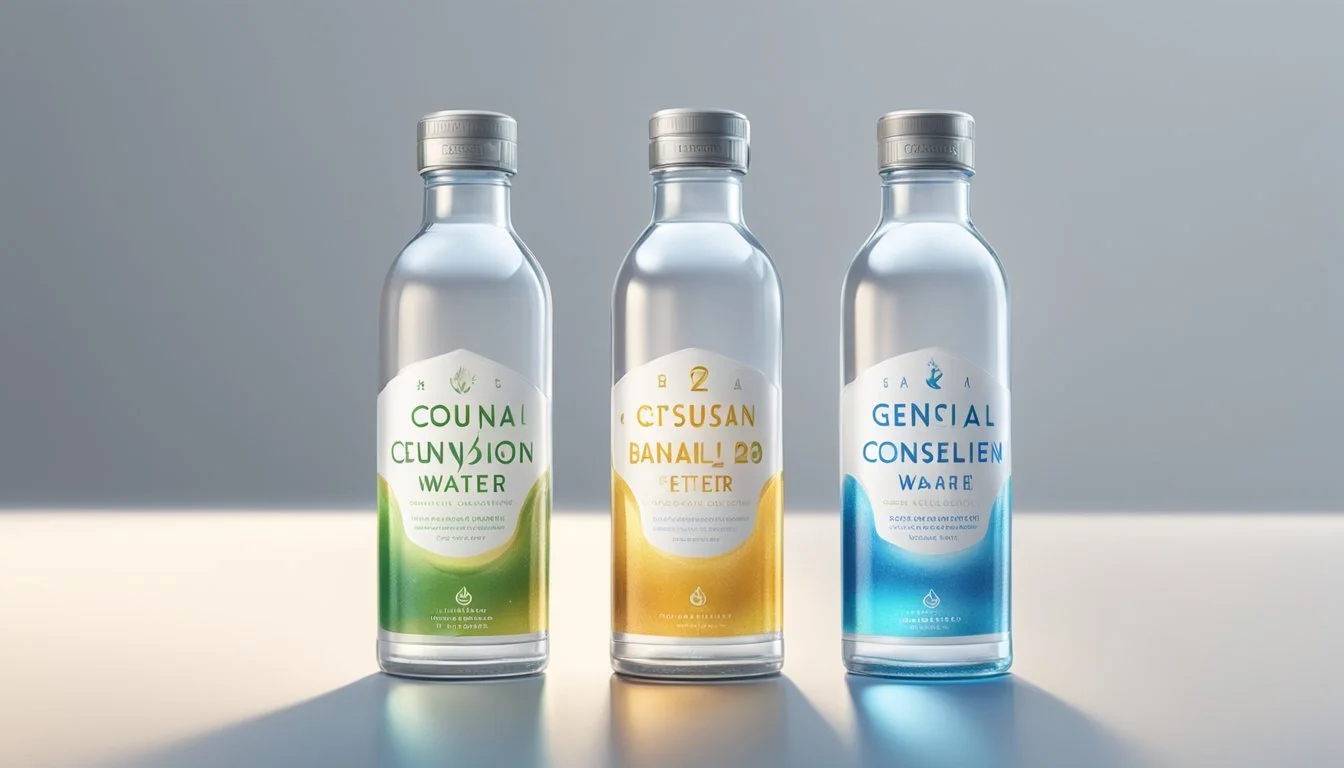Bai vs. Eternal
Comparing Quality and Taste in Bottled Water Brands
Choosing the right bottled water can be a task that involves considering purity, taste, and nutritional benefits. Bai, a beverage known for its antioxidant infusion and low-calorie content, offers a unique proposition. It contains vitamins and a minimal amount of sugar, primarily sweetened by the erythritol and stevia leaf extract. Its distinct flavors are derived from the coffee fruit, a component not common in the bottled water industry.
Eternal Water presents itself as a naturally alkaline water, boasting minerals and electrolytes without the addition of artificial ingredients. It's sourced from protected underground springs, which lends to the narrative of natural purity and health-focused hydration. The brand emphasizes the benefits of its naturally high pH, which aligns with the current wellness trends and consumers' growing inclination toward alkaline diets.
When comparing Bai and Eternal, consumers not only look at the nutritional labels but also gauge the overall brand ethos, sourcing practices, and environmental impact. The decision between Bai’s enhanced water with its flavor profiles and antioxidant contents, and Eternal's naturally sourced alkalinity with its purported health benefits, hinges on personal preferences and priorities in hydration and wellness.
Bai vs. Eternal: Brand Overview
When considering Bai and Eternal in the bottled water marketplace, one represents innovation in enhanced hydration while the other emphasizes purity through natural spring water.
Company Histories
Bai Drinks burst onto the scene with a lineup of antioxidant infusion beverages. Founded in 2009, Bai has extended its brand to include Bai Antioxidant Water, banking on a consumer interest in hydration that supports overall health.
Eternal Water comes from a different tradition, sourced directly from natural springs. Established in 2008, Eternal offers naturally alkaline water that is boasted to be free from environmental pollution and human interference, as it is sourced from protected underground springs.
Brand Mission and Values
The mission of Bai centers around delivering superior hydration options that promote health without sacrificing flavor. Their antioxidant-infused drinks and waters aim to serve those looking for a beverage that supports a healthy lifestyle.
Conversely, Eternal Water's core values lie in providing a pure and untouched product. They value the natural filtration process that their spring water undergoes, offering a pure hydration experience without additional enhancements or additives.
Product Range
Bai's product range has grown to include not just flavored drinks but also a water line. Bai Antioxidant Water is enriched with antioxidants and electrolytes, setting it apart from standard bottled water.
Eternal Water offers a focused range of products, all of which are variations of their alkaline spring water. Their commitment is to purity, and as such, their products are void of any added ingredients, offering natural spring water as their sole hydration solution.
Water Source and Quality
When considering bottled water brands like Bai and Eternal, it's essential to focus on the origins of the water and the methods used to ensure its quality. Different sources and processes can greatly affect the taste and purity of the final product.
Natural Sources
Bai sources its water from natural springs, which offer a variety of minerals imparting a unique flavor profile and potential health benefits. The mineral water provided by Bai is often characterized by its natural content of nutrients and electrolytes. In contrast, Eternal water is known for its mountain valley spring water, boasting its origin from protected and remote natural spring water reserves. Such sources are revered for their purity and the lack of contaminants commonly found in groundwater.
Purification Processes
On the purification front, Bai and Eternal follow different protocols to ensure safety and quality. Eternal Water is said to employ minimal processing, maintaining the water's natural state and preserving its mineral content. Bai, however, may use reverse osmosis and other filtration methods to remove potential contaminants and to provide purified water. These processes are crucial in meeting health and safety regulations while also affecting the final taste profile of the water.
Health and Safety Standards
Both Bai and Eternal adhere to stringent health and safety standards to ensure their bottled waters are safe for consumption. While Eternal capitalizes on its natural filtration through eco-friendly mountain spring water sources like aquifers, Bai ensures quality through both the source and supplementary purification methods. Icelandic Glacial, for instance, is known for its purity and could serve as a benchmark for comparing health standards. Containers, often plastic bottles, are also a consideration; they're ensured to be free from harmful chemicals that could leach into the water.
Taste and Hydration
Choosing between Bai and Eternal bottled waters hinges significantly on an individual's taste preference and hydration needs. While Bai is recognized for its fusion of water with fruit flavors, Eternal offers naturally occurring minerals and electrolytes for effective hydration.
Flavor Profiles
Bai: Bai water distinguishes itself with a range of fruit-inspired flavors. These beverages are infused with natural flavors, appealing to those who favor a fruity twist to their hydration experience. The brand's use of flavors seeks to satisfy the palate while offering variety.
Eternal: Eternal water, by contrast, is known for its untouched taste, as it is sourced from natural springs. The lack of artificial flavors or enhancements in Eternal water means that it tends to have a clean and pure taste, which is preferred by consumers who enjoy the natural flavor of water without additional flavor notes.
Hydration Effectiveness
Bai: Beyond taste, Bai contains added electrolytes. However, the primary focus of Bai is on flavor rather than hydration. The electrolytes in Bai may aid in hydration to an extent, but they are not its primary selling point.
Eternal: Eternal water provides a hydration benefit derived from its natural mineral content. Minerals and electrolytes, which are naturally present in Eternal water due to its spring source, help maintain body hydration. This can be particularly beneficial for health and hydration balance during daily activities and exercise.
Health and Nutrition
When comparing Bai and Eternal bottled waters, it is essential to examine their nutritional content, potential health benefits, and the role they play in hydration. Consumers should consider these factors to choose the best option that aligns with their health and dietary goals.
Nutritional Content
Bai bottled drinks are known for being low-calorie and enriched with antioxidants. A typical Bai drink contains just 10 calories and 1 gram of sugar per bottle, which is minimal compared to other flavored drinks. Bai often includes extracts from the coffee fruit, which carry antioxidants, and tea extracts for additional health-related properties.
Nutrient Amount Per Serving (Bai) Calories 10 Sugar 1g Antioxidants Yes (Coffee Fruit Extract) Vitamins Not specified
In contrast, Eternal water is a brand of natural mineral water that naturally contains minerals like magnesium and boasts a zero-calorie count, as it is unflavored water.
Nutrient Amount Per Serving (Eternal) Calories 0 Sugar 0g Magnesium Present (Natural Mineral) Vitamins None (Unflavored Water)
Health Benefits
Both Bai and Eternal bring about specific health benefits. Bai's low sugar content and inclusion of natural antioxidants may support those looking to maintain a healthy diet without the addition of many calories. Antioxidants help in protecting the body's cells from damage.
Eternal water's naturally occurring minerals, such as magnesium, can be an essential part of the diet, as magnesium is crucial for many bodily functions. Consuming zero-calorie, mineral-rich water like Eternal can contribute to an individual's overall mineral intake without adding calories to their diet.
Hydration with Health in Mind
Hydration is vital for health, and both Bai and Eternal waters offer hydration with additional benefits. Bai provides a flavorful way to stay hydrated while also supplying antioxidants. However, it's important to remember that while Bai can complement one's hydration needs, it should not replace pure water intake. Caffeine is sometimes present in flavored beverages and can have diuretic effects, but Bai's products do not have any added caffeine.
Eternal water, with its natural mineral content and zero calories, is an excellent option for straightforward hydration. The absence of calories and sugar in Eternal water makes it a suitable choice for those who prioritize pure hydration without additional dietary considerations.
Environmental and Ethical Considerations
When choosing between Bai and Eternal bottled water, one must consider the environmental and ethical implications of their production and disposal processes, focusing on aspects such as bottle materials and water resource management.
Bottle Materials and Recycling
Bai and Eternal use different packaging, with Bai often utilizing plastic bottles and Eternal offering some products in boxed water cartons. Plastic bottles, despite being recyclable, carry a significant environmental cost. The production of plastic bottles is resource-intensive, consuming fossil fuels and water, and emitting greenhouse gases. Although recycling can mitigate these effects, the reality is that a substantial portion of plastic never enters the recycling stream.
Eternal's use of boxed water packages presents an alternative. These cartons are typically made from renewable materials and are touted as being more sustainable than plastic bottles. However, the efficiency of recycling these cartons may vary depending on local recycling facilities' capabilities.
Packaging Type Environmental Impact Recyclability Plastic Bottles High carbon footprint Widely recyclable, but often not recycled Boxed Water Cartons Lower carbon footprint Conditionally recyclable, facility-dependent
Water Resource Management
The sources of water for Bai and Eternal differ, with Bai using natural water from antioxidant-infused fruit flavors, and Eternal sourcing their products from natural springs. The extraction of groundwater to produce bottled water can lead to depletion of local water resources, affecting both ecosystems and community water supplies. Sustainable water resource management is critical to ensure that the environmental impacts are minimized.
Eternal claims to source spring water from protected underground springs, and it implies a commitment to sustaining the environment. The company must maintain a balance between water extraction and natural replenishment to avoid ecological disruption.
Brand Water Source Sustainability Practice Bai Natural water with added flavors Not specified Eternal Natural springs Claims sustainable sourcing
Consumers should consider the sustainability practices behind their bottled water choice, assessing the impact of bottle production and recycling viability, as well as the management of the natural water resources being tapped.
Comparative Analysis
This section offers a focused examination of Bai and Eternal bottled waters, comparing them across various criteria that consumers often consider when choosing a bottled water brand.
Price Point Comparison
Bai: Often marketed for its flavor-enhanced water, Bai tends to be positioned at a higher price point compared to traditional bottled waters due to its added health benefits such as antioxidants. Prices may vary regionally and by retailers.
Eternal: Eternal water is naturally alkaline, which can place it in a higher price category. However, in comparison with Bai, Eternal may be seen as more cost-effective when accounting for its naturally sourced electrolytes.
Taste and Health Comparison
Bai: Bai is recognized for its taste, achieved by infusing water with fruit flavors, and sweetened with organic stevia leaf extract and erythritol. With only 1 gram of sugar per bottle and zero calories, Bai focuses on delivering a healthy hydration option.
Eternal: Eternal water boasts a naturally occurring mineral content and alkaline pH level, providing hydration with the added health benefit of electrolytes. The lack of sweeteners in Eternal positions it as a choice for pure taste and health.
Brand Presence and Consumer Perception
Bai: Bai's marketing efforts have been successful, attracting health-conscious individuals seeking flavorful beverages without the calorie count. Its brand is associated with a lifestyle choice, promising more than just hydration.
Eternal: Eternal has a solid presence among consumers looking for natural alkaline water with intrinsic health attributes. The brand positions itself as a premium natural water source, emphasizing the purity of its product.
Market Trends and Consumer Demands
Consumers are increasingly seeking health-conscious hydration options that align with their lifestyles, such as vegan, gluten-free, and naturally sourced waters.
Bai: Bai aligns with market trends through its low-calorie, antioxidant-rich beverage, which caters to the demand for functional drinks.
Eternal: Eternal meets consumer demands for natural and pure hydration without added ingredients, resonating with trends towards wellness and natural products.
Certifications & Endorsements
Bai: Bai waters adhere to vegan and gluten-free standards, which could entice consumers within those dietary niches, emboldening the brand's health-oriented image.
Eternal: Eternal naturally sources its water, bundling the health-promoting aspects of natural alkalinity and mineral content. While not directly related to any famous endorsements, its quality is its endorsement, appealing to purists who favor fewer processing steps.
Consumer Advice
When selecting bottled water, consumers should consider their health needs and preferences in taste. Understanding what makes each brand distinct, including pH levels, mineral content, and presence of sweeteners, is crucial for making an informed choice.
How to Choose the Right Bottled Water
Consumers looking for the best bottled water should compare brands based on several factors. First, pH levels are essential; some prefer alkaline water with a higher pH for its purported health benefits. Second, the mineral content can significantly affect both the health benefits and taste of the water. Minerals like magnesium and calcium contribute to the overall nutrient intake. Lastly, water intended for hydration during physical activities should be free from excessive calories and sweeteners.
Understanding Water Labels
Labels can provide detailed information about the bottled water consumers are considering. They should look for indicators of source (spring, mineral, purified, etc.), mineral content, and any added ingredients like sweeteners or flavourings. Some labels might also boast low calorie content, which can be a decisive factor for those monitoring their calorie intake closely.
Balancing Taste and Health Needs
The ultimate choice of bottled water often comes down to individual taste and health needs. Consumers desiring a refreshing taste might prefer brands like Bai, which typically include flavour enhancements and added benefits like antioxidants, while maintaining a low calorie count. Eternal, known for its naturally high pH and rich mineral content, might suit those prioritizing health benefits derived from drinking natural alkaline water.
Conclusion
When comparing Bai and Eternal bottled water, consumers should consider several key factors to decide which product aligns with their hydration needs. Bai water prides itself on its low-calorie content and the inclusion of antioxidants from coffee fruit extract and tea extract. With only 1 gram of sugar per bottle, it caters to those looking for a refreshing drink with minimal added sugars.
Eternal, on the other hand, offers naturally alkaline artesian water. It boasts of a higher pH level due to its natural source, which can be beneficial for individuals seeking alkaline diets. Eternal water also contains a variety of minerals, which can contribute positively to one's overall mineral intake.
Bai Water:
Low in calories (10 calories per bottle)
Minimal sugar content (1 gram per bottle)
Contains antioxidants
Eternal Water:
Naturally alkaline
Rich in minerals
Sourced from artesian wells
In conclusion, the choice between Bai and Eternal depends on personal preference and individual dietary goals. For those who prefer a water that contributes to their antioxidant intake without extra sugar, Bai may be the preferred choice. For individuals looking for natural alkalinity and mineral-rich content, Eternal may be better suited. Each brand has its unique advantages, and choosing one does not necessarily exclude the benefits of the other. Consumers are encouraged to try both and determine which water best fits their taste and health goals.








